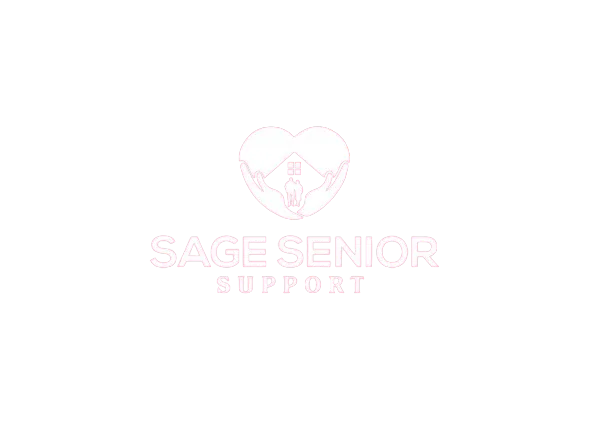
DFW Help Moving Mom to a Senior Facility: Finding the Right Support Level
Moving mom to a senior facility? Professional Care Coordinators in DFW can reduce caregiver stress by 95% while managing complex logistics. Services range from consultations ($249) to full transition management ($1,499), saving families 89 hours of work while preventing costly mistakes.
Key Takeaways:
Professional Senior Care Coordinators can reduce caregiver stress by up to 95% while managing the complex logistics of moving a parent to a senior living facility.
Finding the right support level is crucial - from consultations ($249) to full-service transition management ($1,499) - depending on your family's needs, distance, and available time.
Sage Senior Support offers specialized transition concierge services in the DFW area that can save families an average of 89 hours typically spent managing a parent's transition to care.
Professional transition services help prevent costly mistakes during senior moves while ensuring your parent receives appropriate care that matches their unique needs.
The right transition support serves as both a practical logistics coordinator and an emotional mediator during what can be a challenging family decision process.
When Mom Needs More Help: Understanding Senior Transition Services in DFW
Moving your mom to a senior living facility ranks among life's most emotionally charged and logistically complex challenges. The process involves navigating an unfamiliar healthcare system, managing family dynamics, and ensuring your parent receives appropriate care - all while processing your own emotions about this significant life change.
Sage Senior Support, a specialized senior transition service in the Dallas-Fort Worth area, understands these challenges intimately. "Our data shows adult children spend an average of 89 hours managing a parent's transition to care," notes the company, highlighting the substantial time investment required without professional assistance. You can learn more about their approach to easing this burden at their senior transition concierge services page.
As your parent ages, recognizing when professional help becomes necessary is the first crucial step. Let's examine what senior transition services actually involve and how they can transform what feels like an overwhelming burden into a manageable process.
Understanding Senior Care Coordination Services
What exactly is a Senior Care Coordinator or Transition Concierge?
A Senior Care Coordinator, sometimes called an Elder Care Coordinator (ECC), Geriatric Care Manager, or Transition Concierge, serves as a professional guide through the complex world of senior care. These specialists possess expertise in assessing a senior's needs, developing customized care plans, and coordinating the implementation of various services.
At their core, these professionals bridge the gap between families and the fragmented elder care system. They evaluate your mother's physical health, cognitive function, emotional wellbeing, and living situation to create a comprehensive picture of her needs. This assessment becomes the foundation for developing an appropriate care plan that evolves as her situation changes.
The coordinator's primary purpose is to relieve the overwhelming burden that often falls on family caregivers. They bring specialized knowledge about local resources, medical coordination, and the emotional aspects of care transitions that most families simply don't possess.
Types of coordination services available in the DFW metroplex
The Dallas-Fort Worth area offers several levels of senior transition support, ranging from basic consultations to comprehensive management services. These options allow families to select the right amount of assistance based on their specific circumstances and involvement level.
Full-service transition management packages, like the one offered by Sage Senior Support for $1,499, provide extensive support that eliminates up to "95% of transition stress with one decision." These comprehensive services typically include:
A dedicated transition manager who serves as your single point of contact
Coordination with various providers (moving companies, estate services, cleaning, repairs, etc.)
Documentation management and organization
Regular update calls to maintain family communication
Post-transition follow-up to ensure ongoing care quality
For families who prefer to handle more of the transition themselves but still need professional guidance, consultation options like Sage's "Essential Guidance Package" ($249) provide focused expertise through:
Personalized consultation with a Senior Transition Specialist
Connections to trusted senior service professionals in the DFW area
Specialized checklists for different types of care transitions
Follow-up support to address questions as they arise
Signs it's time to consider professional transition help
Knowing when to seek professional support isn't always obvious. Here are key indicators that it might be time to engage a transition coordinator for your mom:
Distance challenges: If you live far from your mother, a local coordinator becomes your eyes and ears on the ground, providing reliable oversight you simply can't offer remotely.
Overwhelming complexity: When you find yourself drowning in paperwork, confused by healthcare options, or spending countless hours researching facilities, a professional can simplify these processes.
Caregiver burnout: If you're experiencing exhaustion, anxiety, or resentment related to caregiving responsibilities, these are warning signs that additional support is needed.
Family disagreements: When siblings or family members can't agree on care decisions, a neutral third party can mediate discussions and help build consensus.
Progressive medical conditions: Conditions like dementia, Parkinson's, or other complex health issues often require specialized knowledge to manage effectively.
The sooner you recognize these signs, the more time you'll have to make thoughtful decisions rather than crisis-driven ones.
Key Benefits of Professional Support During the Move
Reducing caregiver stress and preventing burnout
Caregiver burnout is a real and serious concern. The physical and emotional demands of managing a parent's care transition often lead to exhaustion, anxiety, and even health problems for adult children. A professional transition coordinator takes on the most time-consuming and stressful aspects of the process.
Rather than juggling countless phone calls, paperwork, and logistical details yourself, you can focus on the emotional support your mother needs during this significant life change. This shift allows you to be present as a daughter or son rather than becoming overwhelmed as a project manager.
Professional coordinators also provide validation and emotional support for family caregivers. They understand the guilt, grief, and conflicting emotions that often accompany these transitions and can offer perspective gained from helping hundreds of families through similar situations.
Navigating DFW's complex senior living options
The Dallas-Fort Worth metroplex offers numerous senior living options, but this abundance of choices can be paralyzing without proper guidance. A local transition coordinator brings invaluable knowledge about:
Which facilities specialize in specific medical conditions like dementia or Parkinson's
The true culture and atmosphere of different communities beyond their marketing materials
Which locations have the best staff-to-resident ratios and staff retention rates
Communities that offer the best value for specific care needs
Locations with the shortest waiting lists or current availability
This insider knowledge helps narrow down options to those that truly match your mother's specific needs, preferences, and budget. Rather than visiting dozens of facilities, you can focus on a carefully curated shortlist.
For families just beginning this journey, our Transition Blueprint serves as a roadmap to simplify the first steps. It organizes key questions to ask, factors to compare, and trusted referrals so you can approach senior living decisions with clarity instead of confusion.
Mediating difficult family conversations about care decisions
Care transitions often expose or exacerbate existing family tensions. Siblings may disagree about the appropriate level of care, financial considerations, or who should handle which responsibilities. These disagreements can derail the transition process and cause additional stress for everyone involved – especially your mother.
A senior transition coordinator serves as a neutral third party who can:
Facilitate family meetings with clear agendas and objectives
Present factual information about your mother's needs and options
Help family members focus on what's best for mom rather than personal preferences
Provide perspective from hundreds of similar family situations
Document decisions and next steps to maintain accountability
This mediation role often proves invaluable in preserving family relationships during what can be an emotionally charged process.
Preventing costly mistakes during transition
Without professional guidance, families often make expensive mistakes during senior transitions. These might include:
Selecting a facility that requires mom to move again when her care needs increase
Paying for unnecessary services or failing to negotiate appropriate rates
Missing opportunities to access benefits or financial assistance programs
Making hasty decisions during a crisis that lead to suboptimal care arrangements
Overlooking important legal or financial planning steps
A transition coordinator helps you avoid these pitfalls by providing a strategic approach based on experience with hundreds of similar situations. Their expertise ensures decisions are made deliberately rather than reactively, potentially saving thousands of dollars while securing better care outcomes.
Services Offered by DFW Senior Transition Professionals
1. Comprehensive needs assessment and personalized care planning
The foundation of effective transition support begins with a thorough evaluation of your mother's current situation. Professional coordinators conduct detailed assessments covering:
Physical health status and mobility limitations
Cognitive function and decision-making capacity
Emotional and social needs
Daily living abilities and assistance requirements
Medication management needs
Current living environment safety
Financial resources and constraints
This comprehensive evaluation provides the basis for developing a personalized transition plan that addresses all aspects of your mother's well-being. The plan typically includes recommended care levels, potential facility types, and a detailed roadmap for implementing the transition.
2. Facility research and selection assistance
Identifying the right facility for your mother requires more than just internet searches. Professional transition coordinators help families navigate this critical decision by:
Matching your mother's specific needs to appropriate facility types (independent living, assisted living, memory care, etc.)
Providing insider knowledge about facility reputations, staffing quality, and hidden costs
Arranging and accompanying you on facility tours to ask the right questions
Negotiating contracts and move-in terms to ensure favorable conditions
Ensuring all necessary assessments are completed for admission
This guidance dramatically narrows your search, saving countless hours while increasing the likelihood of finding the perfect fit for your mother's unique situation.
3. Coordination with healthcare providers and existing services
Effective transitions require seamless coordination with your mother's healthcare team. Transition professionals serve as the central point of communication, managing details such as:
Obtaining and organizing medical records and prescription information
Ensuring proper transfer of care between physicians
Coordinating with specialists to maintain continuity of treatment
Setting up new healthcare provider relationships at the destination
Arranging for special equipment or therapy services if needed
This coordination prevents dangerous gaps in care and ensures all medical professionals are aligned regarding your mother's health management plan.
4. Downsizing, moving logistics, and home sale support
The physical aspects of relocating your mother can be overwhelming, particularly when dealing with a lifetime of possessions. Transition services typically include:
Developing a downsizing plan that respects emotional attachments to possessions
Coordinating estate sales, donations, and disposal of unwanted items
Managing moving company selection and scheduling
Overseeing packing and unpacking to minimize stress
Moving company that helps set up the new living space to feel familiar and comfortable
Providing clear options for selling the family home, whether preparing it for the traditional market or choosing an as-is home sale to avoid repairs, showings, and long timelines
This comprehensive logistical support removes the physical burden from family members while ensuring the process respects your mother's dignity and emotional connection to her belongings.
5. Post-move follow-up and ongoing care management
The transition doesn't end on moving day. Quality transition services include follow-up support to ensure your mother successfully adapts to her new environment. This might include:
Regular check-ins during the first 30-90 days after the move
Advocacy with facility staff to address any concerns or special needs
Adjustments to the care plan as new needs emerge
Coordination of additional services if required
Monitoring for signs of depression or adjustment difficulties
This ongoing support ensures early identification and resolution of any issues, increasing the likelihood of a successful transition.
Cost Breakdown: DFW Transition Services
Full-service packages ($1,499) vs. consultation options ($249)
Transition services in the Dallas-Fort Worth area typically follow two main pricing models, allowing families to choose the level of support that fits their needs and budget.
Full-service transition management packages, like the one offered by Sage Senior Support at $1,499, provide comprehensive support that manages nearly every aspect of the move. According to Sage's data, this service can save families an average of 89 hours of time typically spent managing a parent's transition. The package includes a dedicated transition manager who serves as your single point of contact, comprehensive provider coordination, documentation management, progress tracking, and follow-up support at 30 and 90 days post-transition.
For families who prefer a more hands-on approach but still need professional guidance, consultation options like Sage's Essential Guidance Package at $249 offer a more affordable alternative. This typically includes a personalized consultation with a transition specialist, connections to trusted service professionals in the DFW area, specialized checklists for different transition types, and follow-up support to answer questions as they arise.
Hourly rates for ongoing care coordination ($50-$250)
Beyond the initial transition, some families may require ongoing care coordination services. Elder Care Coordinators in the DFW area typically charge hourly rates ranging from $50 to $250, depending on their experience, credentials, and the complexity of services provided.
These ongoing services might include regular check-ins at the facility, attendance at care plan meetings, coordination with healthcare providers, and advocacy when issues arise. Some coordinators offer package rates or retainer arrangements for families needing consistent, long-term support.
Value assessment: When the investment makes financial sense
While transition services represent an additional expense during an already costly life change, they often provide significant financial value through:
Preventing expensive mistakes in facility selection that could necessitate another move
Helping identify and access benefits programs your mother may qualify for
Avoiding crisis-driven decisions that typically result in higher costs
Reducing time off work for family caregivers, preventing lost wages
Negotiating favorable rates or move-in incentives with facilities
Many families report that the investment in professional transition support ultimately saved them money while providing a smoother, less stressful experience for everyone involved.
Payment options and potential insurance coverage
Most senior transition services are paid out-of-pocket, as Medicare and Medicaid typically don't cover these costs. However, some long-term care insurance policies may cover portions of these services, particularly if they're connected to a qualifying care need.
Many transition service providers offer payment plans or flexible payment options to make their services more accessible. It's worth asking about these options during your initial consultations.
Finding the Right Support Level for Your Family
Assessing your available time, distance, and caregiving capacity
Determining the appropriate level of transition support begins with an honest assessment of your family's situation. Consider factors such as:
Geographic distance: If you live far from your mother or the DFW area, full-service support may be essential to provide local oversight.
Available time: Realistically evaluate how much time you can dedicate to managing the transition while balancing work, family, and other responsibilities.
Emotional capacity: Consider the emotional toll of managing your mother's transition while also processing your own feelings about this life change.
Expertise: Assess your familiarity with senior care options, benefits programs, and healthcare systems in the DFW area.
Family dynamics: If family disagreements are likely to complicate decision-making, a neutral third party may be invaluable.
This self-assessment helps determine whether your family would benefit most from comprehensive management, consultation services, or something in between.
Questions to ask potential service providers
When interviewing transition service providers, these key questions will help you evaluate their fit for your specific needs:
What is your experience with transitions similar to my mother's situation?
How do you typically communicate with families during the transition process?
Can you provide references from families you've recently helped?
What is your approach to resolving disagreements among family members?
How do you handle unexpected challenges during the transition?
What is your fee structure, and are there any potential additional costs?
Do you have established relationships with specific facilities or service providers?
What follow-up support do you provide after the move is complete?
The answers to these questions will reveal not just the provider's capabilities but also their communication style and values, which are crucial for establishing a trusting relationship.
Choosing between agencies and independent providers in DFW
The DFW area offers both agency-based transition services and independent providers, each with distinct advantages.
Agencies typically offer more comprehensive services with backup support if your primary coordinator is unavailable. They often have established systems and processes for managing transitions efficiently. However, they may be more expensive due to overhead costs.
Independent providers often deliver more personalized attention and flexibility in their service offerings. They may also charge lower rates without agency overhead. However, they may have limited backup support and fewer established resources.
Your choice should reflect your priorities regarding cost, personalization, and the breadth of support needed.
Taking the First Step: Resources to Start Your Search Today
Ready to search for transition support options in the DFW area? Here are practical next steps to begin your search:
Schedule a discovery call with a transition service to understand their approach and how it might align with your family's needs.
Request an initial consultation to discuss your specific situation in detail and learn about available options.
Speak with families who have recently gone through similar transitions for recommendations and insights.
Prepare a list of your concerns and questions before your first conversation to ensure you cover all important topics.
Remember that engaging a transition service doesn't mean giving up control over your mother's care. Instead, it provides expert support that empowers your family to make informed decisions while reducing stress and preventing costly mistakes.
When it comes to handling senior transitions in the Dallas-Fort Worth area, Sage Senior Support specializes in providing families with the guidance and hands-on assistance needed to make this challenging process more manageable and less stressful.


